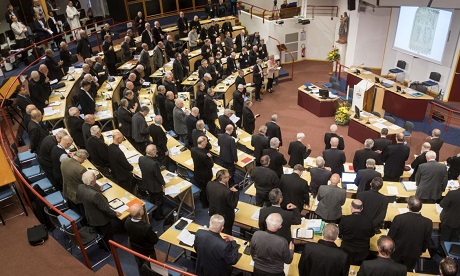France’s Catholic bishops are planning to open their plenary assembly to lay participation.
They made the decision following the passage of a controversial bioethics law despite mass church-backed opposition.
Archbishop Eric de Moulins-Beaufort who is the French Catholic Bishops’ Conference president, “wants to change how our plenaries function and highlight themes common to both church and society,” a spokesperson for the conference says.
“There’s a lot of discussion about clericalism in today’s France, and when it comes to issues affecting everyone, the bishops have realized they need to reflect with laypeople, not just among themselves.”
Lay representatives will be invited to the next conference assembly in Lourdes in November.
They will be asked to offer the assembly their “experience and inspiration” at a debate on ecology.
The bishops will then resume “normal plenary functions” and prepare their final message.
“This is an experiment. We’ll see which ideas and conditions emerge for more regular participation by baptized laypeople,” the conference says.
The bishops’ permanent council says bringing lay people into the plenary assembly is an “exercise in synodality.”
The council has become “rapidly convinced” that social changes have challenged “habits of thought and life” and offered “a great opportunity to shine the light of God’s revelation.”
It is expected that laypeople would be invited to plenaries over the next three years “to promote mutual listening” and “bring the church in France closer to citizens again.”
The bishops’ conference decision to involve laypeople coincided with the the passage of a revised bioethics law in the National Assembly last week.
The revised bill allows state-funded medically assisted procreation for single mothers and lesbian couples.
The measure was condemned by the French church.
Fify-six prelates urged Catholic to oppose it.
Opponents of the bill, supported by hundreds of organizations, organized a mass protest in Paris at the beginning of October.
Msgr. Thierry Magnin, secretary general of the bishops’ conference, says “various philosophical and religious groups” had spoken out during the bioethics debate in a “fine testimony to democracy.”
However, the bishops believe “everything was prejudged from above,” he says
The key “consequences for children to be born” under the new legislation had barely been considered before the assembly vote, says Magnin.
He claims attention was given “only to the hankering and desires of contemporary society,” and what “current science and technology made possible.”
Source
- National Catholic Reporter
- Image: CNN
News category: World.




